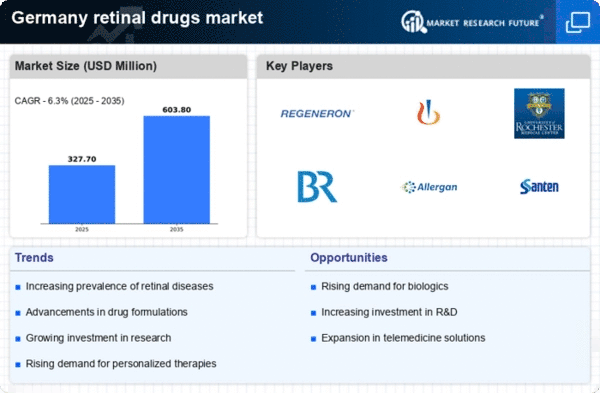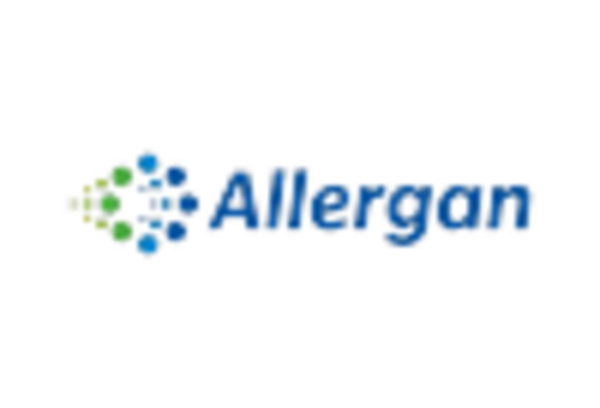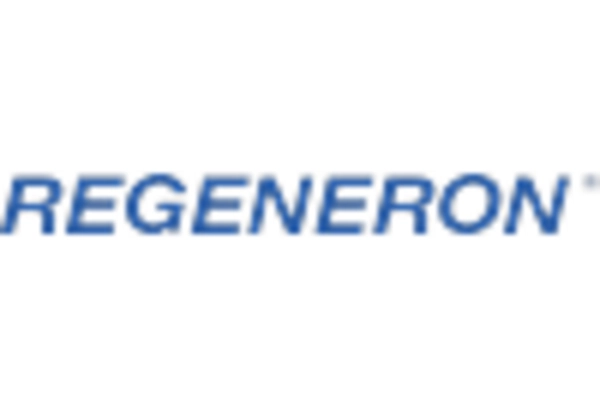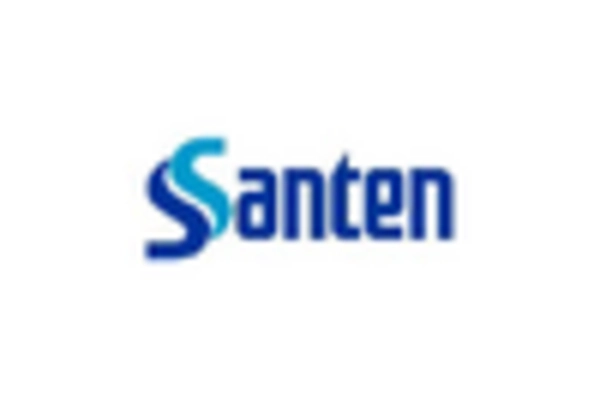Increasing Aging Population
The aging population in Germany is a crucial driver for the retinal drugs market. As individuals age, the prevalence of age-related retinal diseases, such as age-related macular degeneration (AMD) and diabetic retinopathy, tends to rise. It is estimated that by 2030, approximately 25% of the German population will be over 65 years old, leading to a higher demand for effective retinal therapies. This demographic shift necessitates innovative treatment options, thereby stimulating growth in the retinal drugs market. Furthermore, the healthcare system is likely to allocate more resources towards managing these conditions, which could enhance accessibility to advanced therapies. Consequently, pharmaceutical companies may focus on developing targeted treatments to cater to this expanding patient base, ultimately driving market expansion.
Rising Healthcare Expenditure
Germany's increasing healthcare expenditure is a significant driver for the retinal drugs market. The country allocates a substantial portion of its GDP to healthcare, with expenditures projected to reach approximately €500 billion by 2025. This financial commitment enables the development and accessibility of advanced retinal therapies. As healthcare budgets expand, there is a greater emphasis on funding innovative treatments for retinal diseases, which may lead to the introduction of new drugs and therapies. Additionally, the German healthcare system's focus on preventive care and early intervention could further stimulate demand for retinal drugs. Consequently, pharmaceutical companies may find a conducive environment for research and development, ultimately contributing to market growth.
Supportive Regulatory Environment
The regulatory landscape in Germany appears to be increasingly supportive of the retinal drugs market. Regulatory agencies are actively facilitating the approval process for new therapies, particularly those addressing unmet medical needs in retinal diseases. Initiatives aimed at expediting the review of innovative treatments may encourage pharmaceutical companies to invest in research and development. Additionally, the European Medicines Agency (EMA) has established frameworks that promote collaboration between stakeholders, enhancing the likelihood of successful product launches. This supportive environment could lead to a more diverse range of treatment options available in the market, ultimately benefiting patients. As a result, the retinal drugs market may experience accelerated growth, driven by the introduction of novel therapies that meet regulatory standards.
Technological Innovations in Treatment
Technological advancements in drug formulation and delivery systems are significantly influencing the retinal drugs market. Innovations such as sustained-release implants and targeted delivery mechanisms enhance the efficacy of treatments for retinal diseases. For instance, the introduction of intravitreal injections has revolutionized the management of conditions like diabetic macular edema, providing patients with improved outcomes. The retinal drugs market in Germany is expected to benefit from these advancements, as they not only improve patient compliance but also reduce the frequency of treatments required. Moreover, the integration of digital health technologies, such as telemedicine and remote monitoring, may further facilitate patient management and follow-up care. As a result, the market is likely to witness a surge in demand for innovative therapies that leverage these technological breakthroughs.
Growing Awareness and Screening Programs
Increased awareness of retinal diseases and the importance of early detection is driving the retinal drugs market in Germany. Public health initiatives and educational campaigns have been instrumental in promoting regular eye examinations, particularly among high-risk populations. As awareness grows, more individuals are likely to seek screening for conditions such as diabetic retinopathy and AMD. This trend is expected to lead to earlier diagnoses and, consequently, a higher demand for effective treatments. Furthermore, healthcare providers are increasingly implementing screening programs, which may enhance patient access to necessary therapies. The combination of heightened awareness and proactive screening efforts is likely to create a favorable environment for the retinal drugs market, as more patients are identified and treated.
















